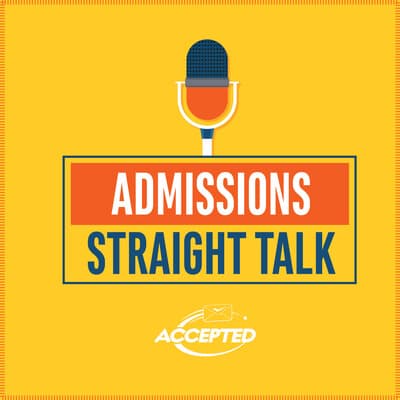Education
A Columbia Med School student's incredible response to COVID-19 [Show summary] Dr. David Edelman, a recent graduate of Columbia Medical School, shares his perspective on pursuing a career in medicine during these exceptional times, as well as what led him to co-found the COVID-19 Student Service Corps. The journey of a Columbia MD/MPH who is already acting on his commitment to health equity [Show notes] What's it like to attend Columbia Medical? Why did this newly minted doc also earn an MPH, and how did he co-found a student organization to help med students serve New York City during the pandemic? That's what we're going to find out. Our guest today is Dr. David Edelman, co-founder and past co-chair of the COVID-19 Student Service Corps. Dr. Edelman earned his bachelor's degree in biology and Spanish from Washington University in St. Louis in 2015. He then began his medical school studies at Columbia University's Vagelos College of Physicians and Surgeons. While there, he also earned an MPH at Columbia Mailman School of Public Health. He is about to start his residency at Montefiore Medical Center in its Primary Care and Social Internal Medicine program. Can you tell us about your background outside of medicine? [2:20] I'm originally from a small suburb outside of Cleveland, Ohio. I grew up there, played a lot of sports growing up, and then left the nest to be an undergraduate in St. Louis at Washington University. I continued on with sports for a little bit there. I played football for a year, was on the club baseball team for a while, and then really found interests in Spanish language, which I studied abroad a little bit in Spain. I just loved being in a different place and being on my own and learning about language and culture and people, as well as global health and the intersections between health and equity in the United States and abroad. I've gotten into running over the last five years. I love hiking. I have a dog who is here with me. Since I haven't started residency, I'm able to spend a lot of time with my dog. I also host a weekly trivia question for friends and family as a way to stay in touch over the last few years, which has been really fun. Those are my little quirky things I like to do. When did you decide to become a doctor? [3:40] I think the first moment was in high school. I think it really speaks to how the teachers that you have really make a difference on what you do in life. I was in a biology class and the teacher I had in 10th grade, Mr. Grim, was just such a phenomenal inspiring person. It's a cliche, but he made all the science come alive. And it's not because we were dissecting animals or anything, but because he really connected everything that we were learning in such a fun, fundamental way to how we live and breathe and act as people. That got me interested in it. The only physician in my family is my uncle. When I was telling him about how much I loved it, that class in 10th grade, he said, "Why don't you come down to my hospital one night, and you can shadow in the emergency room?" That first ever experience in medicine was on a Friday night, downtown Cleveland, in a level one trauma center from 8:00 p.m. to 2:00 a.m. I think even 11 years later, that was still the most jam-packed night of medicine I've ever had. I saw more in those six hours than I think I've seen in week-long periods ever since. It was a pretty cool intro, and from there I knew I wanted to do something in medicine, and that kept growing as I kept exploring more, and I saw myself in that role. What were some of the more impactful experiences that you had as you explored medicine before medical school? [5:13] There were a number of things. When I think of what led me to where I am now, and that includes going into a primary care residency program and integrating medicine and public health through social medicine, I think about these converging threads of my life.

